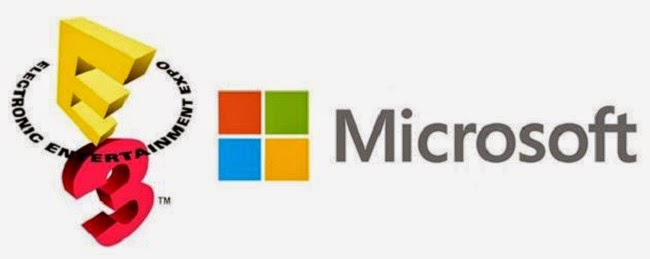Trust.
Nintendo, Microsoft, Sony and other publishers will need to show gamers that they can be trusted this year, which will prove more important than ever as they fight for our dollar.
Last summer was all about promises. Sony and Microsoft had their upcoming systems to tout, and game developers and publishers always try to one-up not only their prior years, but their competitors as well. Gamers are a demanding lot. We tend to occupy the very edge of new technology and as part of the technical community we are always looking for advancements in hardware and development.
The problem is, these big companies have given us reason for skepticism this year. There are quite a few different examples to be had, and no one has proven safe.
Sony:

The PlayStation 4 has pulled ahead as the early leader in the new console generation. The games tend to run at higher resolution and smoother framerates than either the Xbox One or Wii U. Many people felt Sony won last year's E3 with their announcements that the PlayStation 4 would be less expensive than the Xbox One and that you could buy, trade, sell and play used games. For all of the goodwill Sony generated last year and with the early returns on the PlayStation 4, there have been criticisms as well. VentureBeat has an interesting article that demonstrated that Sony actually has yet to fulfill several of their promises from last year. Suspension/immediately resuming games and streaming demos were the two points specifically brought up in the article.
Still, the underwhelming launch titles and lack of 'must have' games exclusive to the platform outside of Infamous: Second Son have not made a compelling case to buy the PlayStation 4 yet.
Another concern for Sony adopters is the PlayStation Vita. Despite superior hardware and recent price drops that include a newer, less expensive model, the Vita still lacks the popularity that the Nintendo 3DS enjoys. There have been a good number of JRPG tiles for the system, reminding me of how the PSP served that genre quite well in years past, but the lack of big titles for the little system has to be worrisome. Even Sony has not managed to put together many compelling examples of software that the gamers simply have to have. Instead most of the successful Vita titles have come from more established properties, like Uncharted and Assassin's Creed.
Microsoft:

This has been an interesting year for Microsoft. They came into last year's E3 with a lot of negative press. They had very few surprise announcements and gamers generally listened expecting the worst - and they got it. Hard to understand rules on playing at a friend's house, restricted play of used games and the always-on Kinect riled up a lot of gamers. Fast forward and Microsoft quickly changed their tune on several of their more controversial topics.
Recently they did an about face on another topic: requiring that you buy the Kinect with the Xbox One. I have always felt that decoupling the Kinect would be a mistake for the Xbox One. For starters, I do not use the Kinect heavily myself. It is not my favorite piece of hardware by any means. I think the voice recognition is still far too sketchy to be reliable and very few games have made the case that the Kinect is the future of gaming. However, the Xbox One is young and the hope is that the Kinect could grow with this generation. Now that it has become optional, fewer people will purchase it and fewer developers will spend valuable research and development on something that does not have a 100% installation base. Microsoft has effectively neutered the Kinect and it is hard to picture the hardware ever gaining acceptance now.
The reason for cutting the Kinect out of the picture was to reduce the cost of the console. I can understand that reasoning, because if Microsoft did not find a way to get the Xbox One into more homes, not only would the Kinect 2.0 fail, but so would the system as a whole. However, the Xbox One is now the same price as the PlayStation 4, yet the hardware is still inferior. Was the Kinect reason enough to differentiate the Xbox One from the PlayStation 4? For some people yes, for many no, but now we have two equally priced pieces of hardware with one unit clearly having better technical specs than the other. Microsoft probably still needs to reduce the console's price further, in order to convince gamers to invest in it over the PlayStation 4.
Nintendo:

The Wii U has nearly withered and died on the vine. A lot of people had trouble envisioning the console as being a success even when it was first announced. Nintendo's message was murky in the beginning, and despite getting to market nice and early, it still felt like more of a half-step into the next generation of gaming instead of the next full fledged evolution for the company. Third party developers seemed reluctant to invest in the console early on, and they have proven even more scarce as time has gone on.
Nintendo loyalists felt as though the Wii was neglected in E3 a couple of years ago when Nintendo was clearly investing everything they had into the Wii and and 3DS. Many owners of the Wii felt as though Nintendo had completely abandoned them. While the 3DS is still doing quite well, there is talk that Nintendo is already starting to formulate an exit strategy for the Wii U. Quite a few sites have even suggested that with the latest Mario Kart and Mario World games failing to move console units, that Nintendo should not waste their resources on fan favorites Metroid and Zelda and that Nintendo should focus on whatever its next console iteration is. I have seen a lot of comments on a lot of forums from Nintendo fans who are getting worried that with Nintendo once again forgoing the big stage at E3, that they might be getting left behind should Nintendo move onto something newer and shinier over the next year or two.
Game developers and publishers:

While most would agree (but not all) that the Xbox One had a slightly stronger selection of release titles than the PlayStation 4, neither console has overwhelmed with its lineup of games so far. A handful of hits such as Titanfall and Infamous: Second Son have helped, but too many titles are still available on both the last and new generation of consoles (including the aforementioned Titanfall). Development for the next generation has been met with a lot of delayed projects (such as Watch Dogs and Drive Club) and have routinely failed to meet with enormous expectations (once again Watch Dogs, but also release titles like Knack and Ryse).
There is a prevailing feeling that while developers such as Ubisoft clamored for newer consoles sooner, they have yet to really take advantage of the hardware. Titles like NBA 2K14, Assassin's Creed 4, Battlefield 4 and Madden 25 were all examples of development efforts that felt stifled because the teams had to keep one foot in each generation. How can the development teams truly do their best work if they are covering so many different platforms? The answer so far is simple, but unfortunate: they can't.
Of course developers want to spend resources on a console installation base that is as large as possible, but until they make compelling cases for why gamers need to upgrade to the Wii U, Xbox One and PlayStation 4, they cannot complain that gamers are not adopting the new systems quickly enough.
The opportunities:
All of these questions give these teams a tremendous opportunity, however. Without a doubt these are pressing, concerning questions - but the right answers could pay huge dividends. Already there is disappointment by companies like Square Enix, who have announced that they will not be showing anticipated titles like Final Fantasy XV. Initially there was hope that The Last Guardian would show up finally, but an IGN report to the contrary says the title is scrapped. IGN then posted a retraction, saying the game is still happening. This just feels like one of those opportunities where fans would love to see something, anything out of this game during E3 this year.
Sony could blow people away by following through on a few more of their promises from last year or with more information about their largely secretive PlayStation Now service.
Microsoft could convince fans that they are taking in feedback and being agile in their decisions by showing exclusive new titles. This would be a far cry from the concern that Microsoft is lacking definitive vision and has become wishy-washy on many of their decisions for the Xbox One.
Nintendo is once again going to be doing hands-on demonstrations at Best Buy, providing a potentially more intimate environment for gamers to experience what they have in store. Now would be the perfect time to show off a new Metroid, Zelda or Fire Emblem title. Or, to show some third party support by showing off the recently announced Fatal Frame that is a Wii U exlusive.
E3 itself:
I feel as if to some degree, E3 itself has been put on notice. Clearly Nintendo does not feel that the show is as important to its marketing strategy as it used to be. The weeks leading up to E3 have become a series of teasers, pre-release trailers and 'leaked' information that unfortunately has spoiled a lot of the 'wow' factor when compared to years past. If any of the big three, or even some of the game developers for that matter, can genuinely pull off a few surprises, it would go a long ways to raising gamer excitement. The instance information age we live in now has largely rendered the E3 conference as all style and no substance. Perhaps the conference itself needs to find a way to convince us that it is still relevant this year - and just as importantly - the future as well.
Article by Nick















